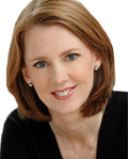Philosophy
Twelve Tips for Reading More.
Want to read more? Start with a book you enjoy!
Posted January 28, 2010
Of my hundreds of happiness-project resolutions, one of my very favorite resolutions is to Read more.
Reading is an essential part of my work. It forms an important part to my social life. And far more important, reading is my favorite thing to do, by a long shot. I’m not a well-rounded person.
But reading takes time, and there aren’t many days when I can read as much as I’d like. Here are some strategies I use to help me get more good reading done.
1. Quit reading. I used to pride myself on finishing every book I started. No more. Life is short. There are too many wonderful books to read.
2. Read books you enjoy. When I’m reading a book I love—for example, I’m now reading A. S. Byatt’s The Children’s Book—I’m astonished by how much time I find to read during my day. Which is another reason to stop reading a book I don’t enjoy.
3. Use TiVO. It’s much more efficient to watch shows on TiVO, because you skip the commercials and control when you watch. Then you have more time to read.
4. Skim. Especially when reading newspapers and magazines, often I get as much from skimming as I do by a leisurely reading. I have to remind myself to skim, but when I do, I get through material much faster.
5. Get calm. I have a sticky note posted in our bedroom that says, “Quiet mind.” It’s sometimes hard for me to settle down with a book; I keep wanting to jump up and take care of some nagging task. But that’s no way to read. Incidentally, one of the main reasons I exercise is to help me sit still for reading and writing -- if I don't exercise, I'm too jumpy.
6. Don’t fight my inclinations. Sometimes I feel like I should be reading one book when I actually feel like reading something entirely different. Now I let myself read what I want, because otherwise I end up reading much less.
7. Always have something to read. Never go anywhere empty-handed. I almost always read actual “books,” but I carry my Kindle with me everywhere, so that I know I’ll never be caught without something to read. It’s a great comfort.
8. Maintain a big stack. I find that I read much more when I have a pile waiting for me. Right now, I have to admit, my stack is so big that it’s a bit alarming, but I’ll get it down to a more reasonable size before too long.
9. Choose my own books. Books make wonderful gifts – both to receive and to give – but I try not to let myself feel pressured to read a book just because someone has given it to me. I always give a gift book a try, but I no longer keep reading if I don’t want to.
And some tips from great writers and readers:
10. Randall Jarrell: “Read at whim! Read at whim!”
11. Henry David Thoreau: “Read the best books first, otherwise you’ll find you do not have time.”
12. Samuel Johnson: “What we read with inclination makes a much stronger impression. If we read without inclination, half the mind is employed in fixing the attention; so there is but one half to be employed on what we read.”
Maybe you don’t love to read, so finding more time to read isn’t a happiness challenge for you. The larger point is to make sure you’re finding time to do whatever it is that you find fun. Having fun is important to having a happy life, yet it’s all too easy for fun to get pushed aside by other priorities. I have to be careful to make time for reading, or, even though I love to read, I might neglect it.
Have you found any good strategies to find more time to read – or to do whatever it is you find fun?
* It’s Word-of-Mouth Day, when I gently encourage (or, you might think, pester) you to spread the word about the Happiness Project. You might:
-- Forward the link to someone you think would be interested
-- Link to a post on Twitter (follow me @gretchenrubin)
-- Sign up for my free monthly newsletter (about 33,000 people get it)
-- Buy the book
-- Join the 2010 Happiness Challenge to make 2010 a happier year
-- Put a link to the blog in your Facebook status update
-- Watch the one-minute book video
Thanks! I really appreciate any help. Word of mouth is the BEST.


